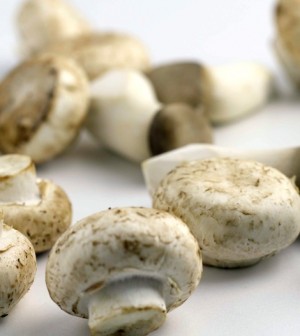- Double Mastectomy May Offer No Survival Benefit to Women With Breast Cancer
- Toxic Lead Found in Cinnamon Product, FDA Says
- Certain Abbott Blood Sugar Monitors May Give Incorrect Readings
- Athletes Can Expect High Ozone, Pollen Counts for Paris Olympics
- Fake Oxycontin Pills Widespread and Potentially Deadly: Report
- Shingles Vaccine Could Lower Dementia Risk
- Your Odds for Accidental Gun Death Rise Greatly in Certain States
- Kids From Poorer Families Less Likely to Survive Cancer
- Tough Workouts Won’t Trigger Cardiac Arrest in Folks With Long QT Syndrome
- At-Home Colon Cancer Test Can Save Lives
Grill Safely This Holiday Weekend


July Fourth is nearly here, and chances are your weekend plans include at least some grilling.
Check out the following cooking tips from registered dietitian Elizabeth Murray to help protect yourself and your loved ones.
“When it comes to grilling, there are two main dangers to avoid: carcinogens, which are agents that can cause cancer, and food poisoning,” said Murray in a statement provided by Georgia Regents University.
The dripping fat on a grill can cause hazardous smoke. But Murray said grillers should be more concerned about cooking meat with extremely high heat, especially if they eat a lot of it.
Why? Because high heat — above 400 degrees Fahrenheit — produces chemicals in meat that are linked to cancer.
“Research shows that people who eat large amounts of grilled, barbecued and well-done red meats have higher cancer risks.”
Eliminating meat from the menu may be too much for some grillers to bear. “However, if you increase your antioxidant intake, you can help counteract the cancer risk. So pairing your barbecued meat with a fruit salad or fresh vegetables is a great idea,” Murray said. “Remember, the more colorful, the better.”
It’s also important to avoid undercooking. “Meat must cook completely and thoroughly to kill harmful bacteria, such as E. coli and salmonella,” Murray said. “Always check the cooking instructions on the meat packaging to find out the appropriate temperature for cooking and doneness.”
Here are some more tips for healthy grilling:
- Buy meat and poultry last when you go shopping and separate them from other food to avoid cross-contamination. Do the same thing when you put the food in the fridge.
- Freeze meat if you aren’t going to cook it promptly.
- Thaw frozen meat completely. The refrigerator is a good place to thaw meat. Or use the microwave’s defrost setting, but just make sure to grill the meat right away.
- Marinades used before cooking can reduce cancerous chemicals in meat. But, don’t marinade or defrost meat on the counter. And, don’t reuse marinade that had raw meat in it for dipping.
- Scrub the grill with hot soapy water before you use it, and do the same thing for any dishes, brushes, utensils and so on if you’re using them for more than one kind of raw or cooked meats.
- Consider precooking meats in the microwave for two to five minutes to reduce cancerous chemicals.
- Cook hamburgers to at least 160 degrees Fahrenheit and chicken to at least 170 degrees. Check the temperature of the thickest part of the meat with a meat thermometer.
- It’s also important not to char or blacken meat.
More information
Get tips on safe grilling, try the National Fire Protection Association.
Source: HealthDay
Copyright © 2024 HealthDay. All rights reserved.










